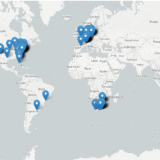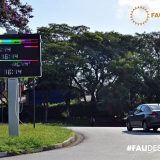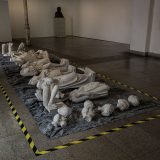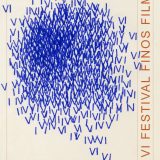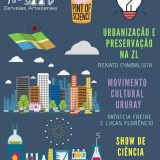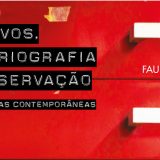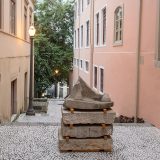Abstract
Dissenting Windows is a sound analysis project on the impact of coronavirus in urban culture from the point of view of the city of São Paulo (Brazil). In order to study the sound potentiality as a social marker on the unprecedented conditions of isolation, we started a collective and distributed audio capture process in 10 different spots throughout the city. The capture occurs three times a day and in specific moments when protests emerge from the nearby windows. The set of this sound documentation will feed an installation and / or an online platform aiming to establish visuality and geography to the information collected. The social heterogeneity of São Paulo and the “negationist” particularities of Jair Bolsonaro’s presidency about the reality of the pandemic, imposed characteristics that became noticeable in the new soundscape of the city. In the central neighborhoods, the urban infrastructure’s noise has been replaced by birds’ chirping sounds. However, 30 km away, on the periphery, music, meetings on the street, the impossibility of working remotely and the affinity to the guidelines of Bolsonarism show that the city’s sounds also reveal, in the Brazilian case, political and ideological indicators. A significant moment is when the population turns to the banging of pans and pots to protest out of their windows, around 8:30 pm. On weekends, caravans of government supporters are common, manifesting themselves inside their cars. The uproars are frequent and disclose our contradictions, indicating sound mapping as a possible urban methodology of the Global South.
Project samples
Group bio
Dissenting Windows is a collaboration between associate professor Giselle Beiguelman and the students enrolled in the postgraduate course “Art and Interface Design on an Urban Scale” at FAUUSP – Faculty of Architecture and Urbanism at the University of São Paulo, Brazil. The course reflects on connected interfaces in the city, big data and surveillance. Giselle Beiguelman investigates the aesthetics of memory in the 21st century and develops projects of artistic interventions in the public space and with digital media. Beiguelman has authored books and articles on contemporary nomadism, preservation of digital art and on digital culture. She was the Head of FAUUSP’s Design Course from 2013 to 2015, where she has been teaching since 2011. The 2020’s class is a heterogeneous group, from different generations and specializations such as design, visual arts, architecture, fashion, philosophy and geography, as well as residents of several areas of the metropolis. Since March 16th the classes are occurring online and welcoming new perspectives the pandemic brought to the original program.
Aline Alves Nakamura
Ana Paula Alves Leal
Bruno Seravali Moreschi
Giselle Beiguelman
Helena Cavalheiro
Iago Vieira Santos
Icaro de Abreu
Laura Salerno
Livia Debbane
Luciana Moherdaui
Marcos Assis Piffer
Maria Claudia Levy
Matheus da Rocha Montanari
Paula Monroy
Sandra Kafka
Vinicius Santos Almeida
More about the project (Media)
Projeto da USP registra os sons da quarentena nas ruas e janelas da cidade. Jornal da USP+, 22 de julho de 2020.
Ouvindo a Pandemia. Diálogos Mecila #3, 01 de julho de 2020.
Grupo de pesquisadores aproveita mudanças da quarentena para analisar sons da capital, Rede Globo, SPTV, 22 de maio de 2020
Como são os sons da cidade na quarentena?. Jornal da USP, 27 de abril de 2020
Jornal da TV Cultura, 22 de abril de 2020
Com Emicida, podcast discute o silêncio e o ruído na quarentena, Podcast Expresso Ilustrada, 16 de abril de 2020
Artistas gravam sons das cidades que ficaram desertas por causa do coronavírus. Folha de S. Paulo, 11 de abril de 2020.





